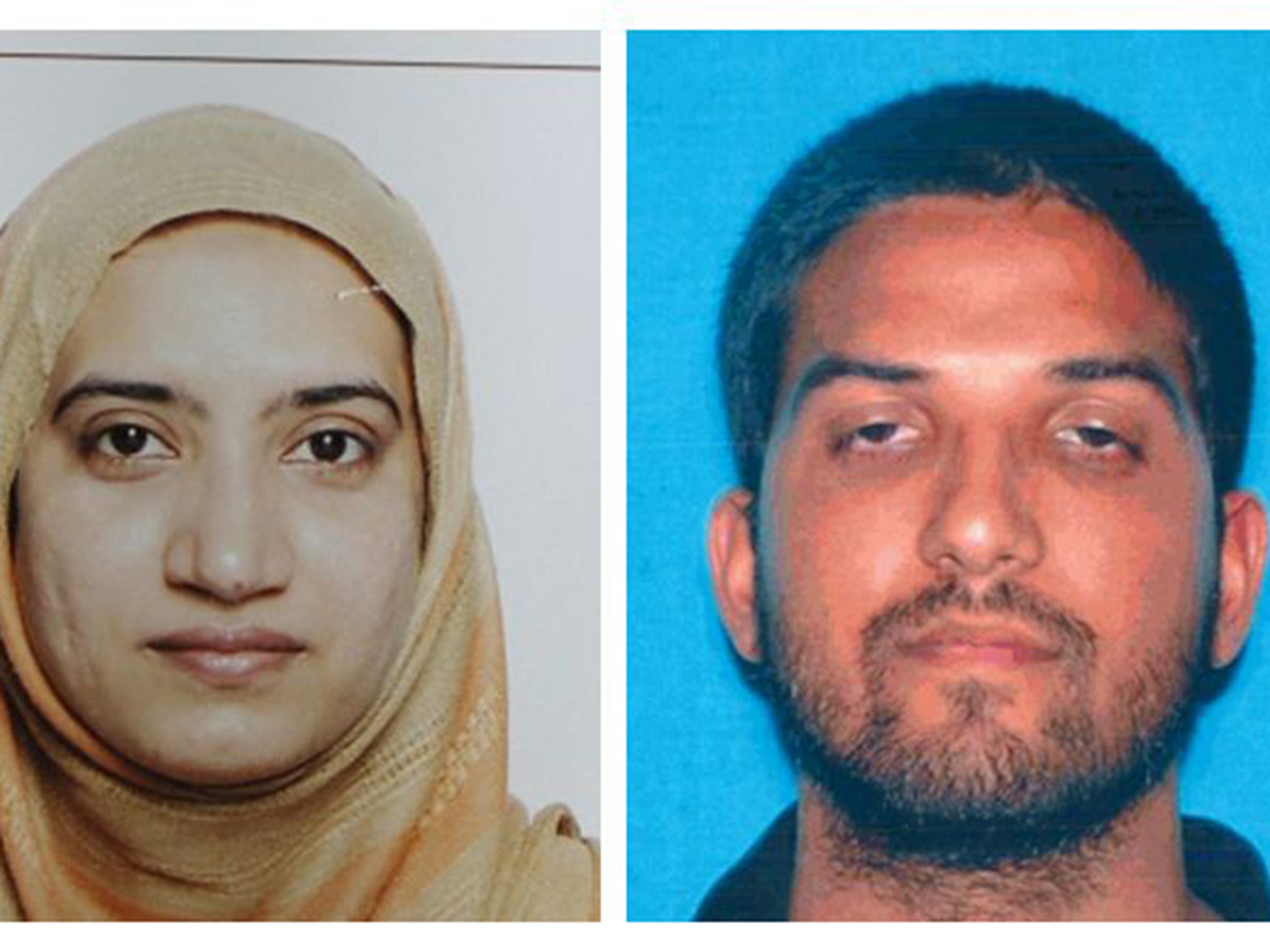Syed Rizwan Farook: Apple ordered to unlock San Bernardino gunman’s phone
Farook and his wife killed 14 people and injured 22 others when he and his wife opened fire at social services agency

Your support helps us to tell the story
From reproductive rights to climate change to Big Tech, The Independent is on the ground when the story is developing. Whether it's investigating the financials of Elon Musk's pro-Trump PAC or producing our latest documentary, 'The A Word', which shines a light on the American women fighting for reproductive rights, we know how important it is to parse out the facts from the messaging.
At such a critical moment in US history, we need reporters on the ground. Your donation allows us to keep sending journalists to speak to both sides of the story.
The Independent is trusted by Americans across the entire political spectrum. And unlike many other quality news outlets, we choose not to lock Americans out of our reporting and analysis with paywalls. We believe quality journalism should be available to everyone, paid for by those who can afford it.
Your support makes all the difference.Apple has been ordered by a US court to help FBI investigators unlock the iPhone of one of the San Bernardino shooters and access its data.
The order concerns an iPhone 5C that belonged to Syed Rizwan Farook, the gunman who, together with his wife Tashfeen Malik, killed 14 people and injured 22 when they opened fire on a social services agency in California last year. Farook and Malik were both killed in a shootout with police.
The FBI is treating the shooting as an incident of domestic terrorism and have been investigating Farook and Malik’s potential communications with Isis and other militant groups.
Apple has been told the company must provide “reasonable technical assistance” to investigators in their attempts to access the phone’s data.
This means disabling the phone’s auto-erase function, which kicks in after an incorrect passcode has been entered 10 times consecutively, and helping the FBI to submit passcode guesses rapidly and electronically, as there are 10,000 possible passcode combinations that could have been used by Farook.
The ruling is the latest step in a long-running dispute between tech companies and law enforcement over the limits of encryption. US government officaials have warned that the expanded use of strong encryption is hindering national security and criminal investigations, but technology experts and privacy advocates argue that forcing companies to weaken their encryption would make private data vulnerable to hackers.
After the Edward Snowden revelations in late 2014, Apple, Google and other Silicon Valley tech companies made changes to their encryption settings. This means that not even Apple is able to access the data on Farook’s phone, the BBC reports.
The Los Angeles court has given Apple five business days to contest the order if it believes that assisting the FBI in this manner would be “unreasonably burdensome”.
Apple’s CEO Tim Cook on Tuesday released a “message to our customers,” stating that the US government has taken an “unprecedented step which threatens the security of our customers”. His lengthy statement argues the need for encryption and says: “We oppose this order, which has implications far beyond the legal case at hand”.
Apple has not responded to a request for comment from The Independent.
Additional reporting by Reuters News Agency
Join our commenting forum
Join thought-provoking conversations, follow other Independent readers and see their replies
Comments